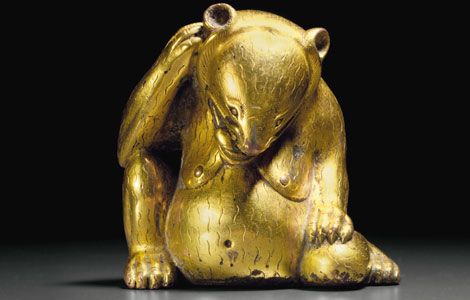Underestimate not the power of the people
Updated: 2015-02-14 07:48
By Op Rana(China Daily)
|
||||||||
Rarely has a party won 95 percent seats in a democratic election, certainly not in India. But that is exactly what happened in the election to the Delhi Assembly, results for which were declared on Feb 10.
The historic win of the Aam Aadmi Party (Common Man's Party) - though it was in a provincial rather than national election - is especially relevant to China. The main election planks the AAP fought the election on were fight against corruption and good governance, the two major aspects of reform in China. And like the Chinese leadership, the AAP also lays great emphasis on having close relations with and serving the public.
Even till a month ago, the media and psephologists considered the AAP a spent force, at best underdogs. But proving all earlier predictions wrong, the AAP has brought the so-called juggernaut of India's ruling right-wing Bharatiya Janata Party led by Prime Minister Narendra Modi to a violent halt. If there ever was a contest between David and Goliath, this was it.
For the uninitiated, the AAP was formed in late 2012 by activists who had launched the India Against Corruption movement the previous year. In late December 2013 the AAP contested the Delhi (or National Capital Region including India's capital New Delhi) Assembly election and won 28 of the 70 seats, with the BJP winning 31. Since no party had won a clear majority, the AAP formed a minority provincial government with outside support from the Congress party, the then ruling party of India, which had won eight seats.
The India Against Corruption movement, and thus the AAP, was launched to demand good governance and the end of corruption in politics. One of IAC's main demands was the passage of the Jan Lokpal Bill (or Citizens' Ombudsman Bill) drawn up by civil society and the appointment of an independent ombudsman to investigate corruption cases against politicians and bureaucrats. After forming the government in Delhi, the AAP tried to get the bill passed at the provincial level in the assembly with the help of the Congress party but in vain. In protest, the AAP government resigned in February 2014 after being in power for just 49 days.

 5 things you may not know about the Spring Equinox
5 things you may not know about the Spring Equinox
 Solar eclipse wows viewers
Solar eclipse wows viewers
 New Year Carnival thrills Vancouver
New Year Carnival thrills Vancouver
 Across America over the week (from March 13 to 19)
Across America over the week (from March 13 to 19)
 How much do world leaders earn?
How much do world leaders earn?
 Daredevil ropejumpers leap 200 meter off cliff
Daredevil ropejumpers leap 200 meter off cliff
 Harley motorcade shows up in Boao, Hainan
Harley motorcade shows up in Boao, Hainan
 Ming art sets Christie's high
Ming art sets Christie's high
Most Viewed
Editor's Picks

|

|

|

|

|

|
Today's Top News
Six Western economies apply to join AIIB
US urged to honor pledge
Ex-wife of Chinese fugitive
to be released
China's plan to move from being 83
Investors tour Bay Area
Ex-Chinese official indicted in
money laundering
Yahoo to exit from Chinese
mainland market
Sticking it to the selfie stick as museums ban
US Weekly

|

|









